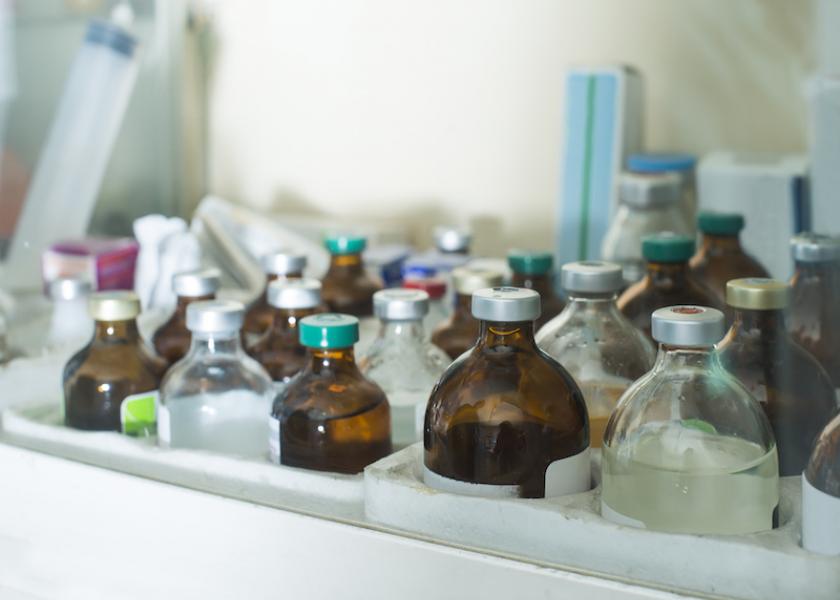Over-the-Counter Antibiotics Are Going Away: 5 Tips to Prepare Your Farm

On June 11, 2023, the FDA’s new directive, “Guidance for the Industry #263,” is slated for implementation, meaning that over-the-counter (OTC) antibiotics will no longer be available through traditional retail channels. Instead, these antibiotics will now require a prescription from a licensed veterinarian.
While livestock producers are continuously working to practice judicious antibiotic usage, no longer having the ability to purchase commonly used antibiotics, such as penicillin, can throw farmers a curveball.
Linda Tikofsky, DVM and Senior Associate Director of dairy professional services at Boehringer Ingelheim, says there are several steps producers should be taking now to prepare for the change.
Take Inventory
“I think the number one thing to do is just take inventory of what you’re using and what you won’t be able to purchase after June 2023,” Tikofsky says. “Go through your drug cabinet, take note of what you’re using and how often you’re using it.”
Know What You’re Treating
It’s hard to know what you need if you don’t know what you’re treating. According to Tikofsky, part of judicious antibiotic use is understanding the diseases on your farm and knowing how to treat them.
“Understanding what you’re up against and how to treat a disease is an important part of animal husbandry,” Tikofsky says. “Very often, antibiotics are not the only avenue when treating an illness or condition. Talk with your veterinarian to better understand when and how to treat when using an antibiotic, and work with them to see if there are other treatment options available.”
Prioritize Preventative Management
The best way to avoid using antibiotics is to prioritize preventative management. Take time to review herd health protocols and work proactively with your veterinarian and other consultants to address health issues within the herd.
Talk With Your Vet
Now is the time to work with your veterinarian to develop a plan to adjust the way your farm will access animal health products.
“Going forward, all prescriptions will need to be provided by a licensed veterinarian with whom the producer has a valid veterinary-client-patient relationship,” Tikofsky says. “This really shouldn’t affect farmers too much, it will just require them to have a good working relationship with their vet, which is always the goal. When it comes to obtaining antibiotics, producers will either need to purchase antibiotics from the veterinarians themselves or use a distributor that has a pharmacy license. Your vet should be able to help you find one of these distributers.”
Assemble Your Team
Surrounding your farm with the best team members should always be top of mind. According to Tifkofsky, now is the time to make sure your entire team is on board with your farm’s animal health objectives.
“It’s important to not only talk to your veterinarian about this, but also your nutritionist, herd managers and employees,” she says. “Make sure you’re assembling the right team to set your operation up for success.”
For more on herd health, read:
- Over-The-Counter Access to Antibiotics is Going Away
- How Much Can a Probiotic Really Do?
- What Is the Best Needle Size to Use When Working Cattle?







